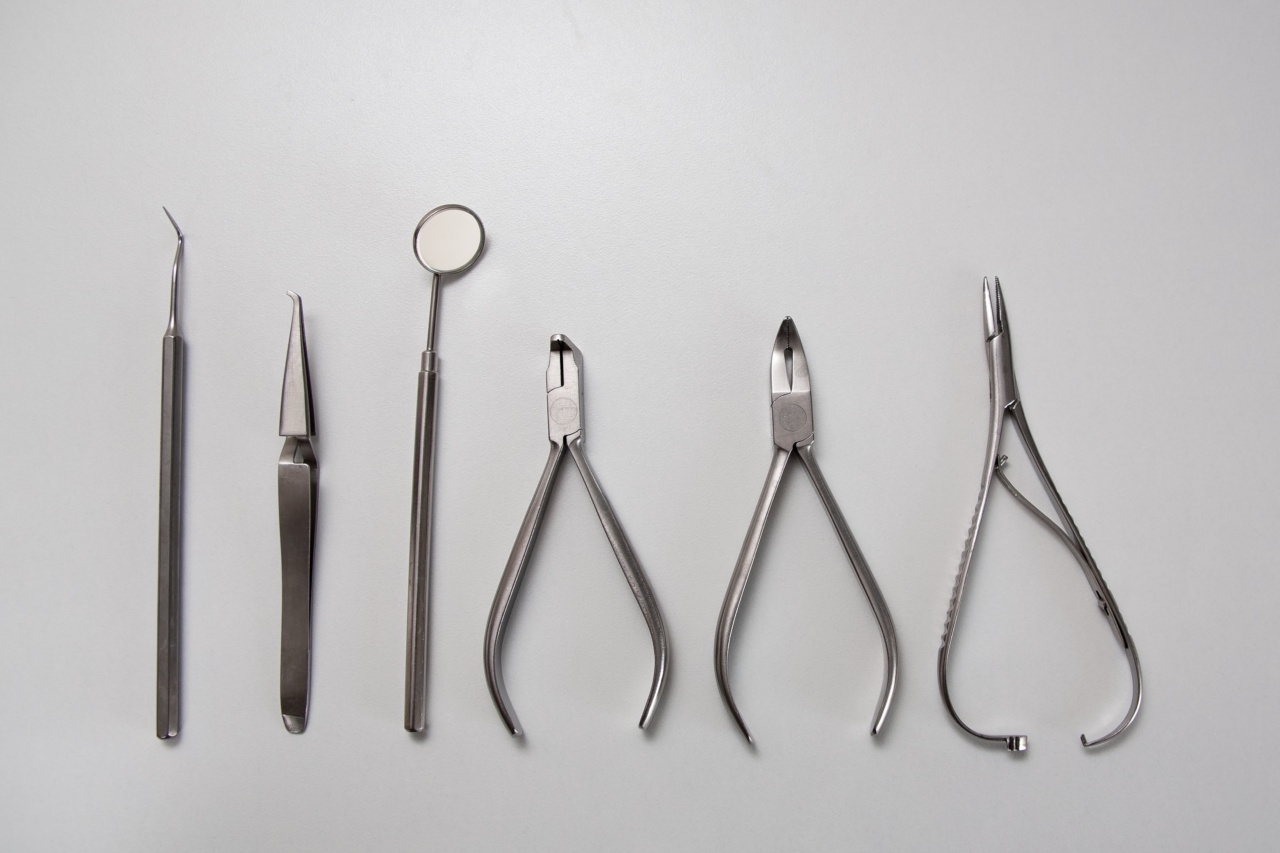Oral care is an essential aspect of maintaining good overall health. Taking care of your teeth and gums not only ensures a bright smile but also prevents various dental issues such as cavities, gum diseases, and bad breath.
Your oral health directly impacts your ability to eat, speak, and interact with others confidently. To provide expert guidance on oral care, we sought advice from the dentists who have been cherished by many – your grandma’s prized dentists.
Drawing from their knowledge and experience, we present to you a comprehensive guide to oral care that you simply can’t ignore.
1. Brushing Technique – The Foundation of Oral Care
The first step in maintaining good oral hygiene is mastering the art of brushing your teeth properly. Your grandma’s prized dentists recommend the following technique:.
1. Hold your toothbrush at a 45-degree angle to your gumline.
2. Use gentle, circular motions to brush the outer and inner surfaces of your teeth.
3. For the chewing surfaces, use short back-and-forth strokes.
4. Don’t forget to brush your tongue to remove bacteria and freshen your breath.
2. The Right Toothbrush and Toothpaste
The choice of toothbrush and toothpaste plays a crucial role in maintaining oral health. Consider the following pointers suggested by grandma’s prized dentists:.
1. Opt for a soft-bristled toothbrush to minimize damage to your tooth enamel and gums.
2. Electric toothbrushes can provide effective cleaning due to their oscillating or vibrating motion.
3. Look for toothpaste that contains fluoride to strengthen your tooth enamel and protect against cavities.
4. Avoid toothpaste with harsh abrasives that can erode your enamel over time.
3. Flossing – The Hidden Secret
Flossing is often neglected, but it is an integral part of maintaining optimal oral hygiene. Dental professionals have long advocated for regular flossing, and grandma’s prized dentists are no different. Follow these tips for effective flossing:.
1. Use a generous amount of floss, around 18 inches, and wind it around your middle fingers.
2. Gently guide the floss between your teeth and form a C-shape to hug each tooth.
3. Glide the floss up and down against the sides of each tooth to remove plaque and food particles.
4. Don’t forget to floss the back surfaces of your rear molars as well.
4. Mouthwash – Supplementary Care
In addition to brushing and flossing, mouthwash can provide supplementary oral care benefits. Here’s what the celebrated dentists advise:.
1. Rinse your mouth with mouthwash after brushing and flossing to kill bacteria and freshen your breath.
2. Look for mouthwash that contains fluoride to boost your teeth’s resistance to decay.
3. Avoid alcohol-based mouthwashes as they can cause dry mouth and irritation.
4. Ask your dentist for recommendations based on your specific oral health needs.
5. Healthy Diet, Healthy Smile
Grandma’s prized dentists emphasize the importance of a healthy diet in maintaining good oral health. Follow these dietary recommendations:.
1. Limit sugary and acidic foods that can erode your tooth enamel and promote cavity formation.
2. Include plenty of fruits, vegetables, and whole grains in your diet for essential vitamins and minerals.
3. Chew sugar-free gum after meals to stimulate saliva production and neutralize acids in your mouth.
4. Stay hydrated to keep your mouth moist and wash away food debris.
6. Regular Dental Check-ups
A crucial aspect of oral care that cannot be ignored is regular dental check-ups. Here’s why grandma’s prized dentists advise scheduling routine visits:.
1. Professional dental cleanings help remove stubborn plaque and tartar buildup.
2. Dentists can detect early signs of dental issues such as cavities, gum disease, or oral cancer.
3. Regular check-ups allow dentists to provide preventive care, including fluoride treatments and dental sealants.
4. Your dentist can offer personalized advice based on your specific oral health needs and concerns.
7. Say No to Bad Habits
Some habits can have a detrimental effect on your oral health. Grandma’s prized dentists recommend avoiding the following:.
1. Smoking and tobacco use increases the risk of gum disease, oral cancer, and tooth loss.
2. Biting your nails or chewing on pens/pencils can cause tooth fractures and jaw problems.
3. Using your teeth as tools (e.g., opening packages) can lead to chips and cracks.
4. Excessive consumption of alcohol can contribute to dry mouth and oral health issues.
8. Oral Care for Different Life Stages
Oral care needs can vary depending on your age and life stage. Here’s what grandma’s prized dentists suggest:.
1. Childhood: Establish good oral hygiene habits from an early age and encourage regular dental visits.
2. Adolescence: Monitor orthodontic needs and educate teenagers on the importance of oral care.
3. Pregnancy: Hormonal changes during pregnancy can increase the risk of gum disease, so maintain thorough oral hygiene.
4. Aging: Older adults should pay extra attention to oral care, as age can bring dental health challenges such as dry mouth and gum disease.
9. Dealing with Dental Emergencies
Grandma’s prized dentists understand that dental emergencies can occur unexpectedly. Be prepared with these tips:.
1. Toothache: Rinse your mouth with warm saltwater, use dental floss to remove any trapped food particles, and take over-the-counter pain relievers if needed.
2. Knocked-out tooth: Place the tooth back in its socket if possible, or store it in milk or saliva until you can reach a dentist immediately.
3. Lost filling: Apply a temporary dental filling material available at pharmacies and see your dentist as soon as possible.
4. Broken braces or wires: Use orthodontic wax to cover any sharp edges and schedule an appointment with your dentist or orthodontist.
10. Teaching Oral Care to Future Generations
To ensure a lifelong commitment to oral health, it’s crucial to pass on good oral care habits to future generations. Follow these tips:.
1. Lead by example and maintain good oral hygiene practices yourself.
2. Make brushing and flossing a fun and interactive activity for children.
3. Teach children about the importance of oral health and how it affects their overall well-being.
4. Take children for regular dental check-ups to instill a positive attitude towards dental care.





























